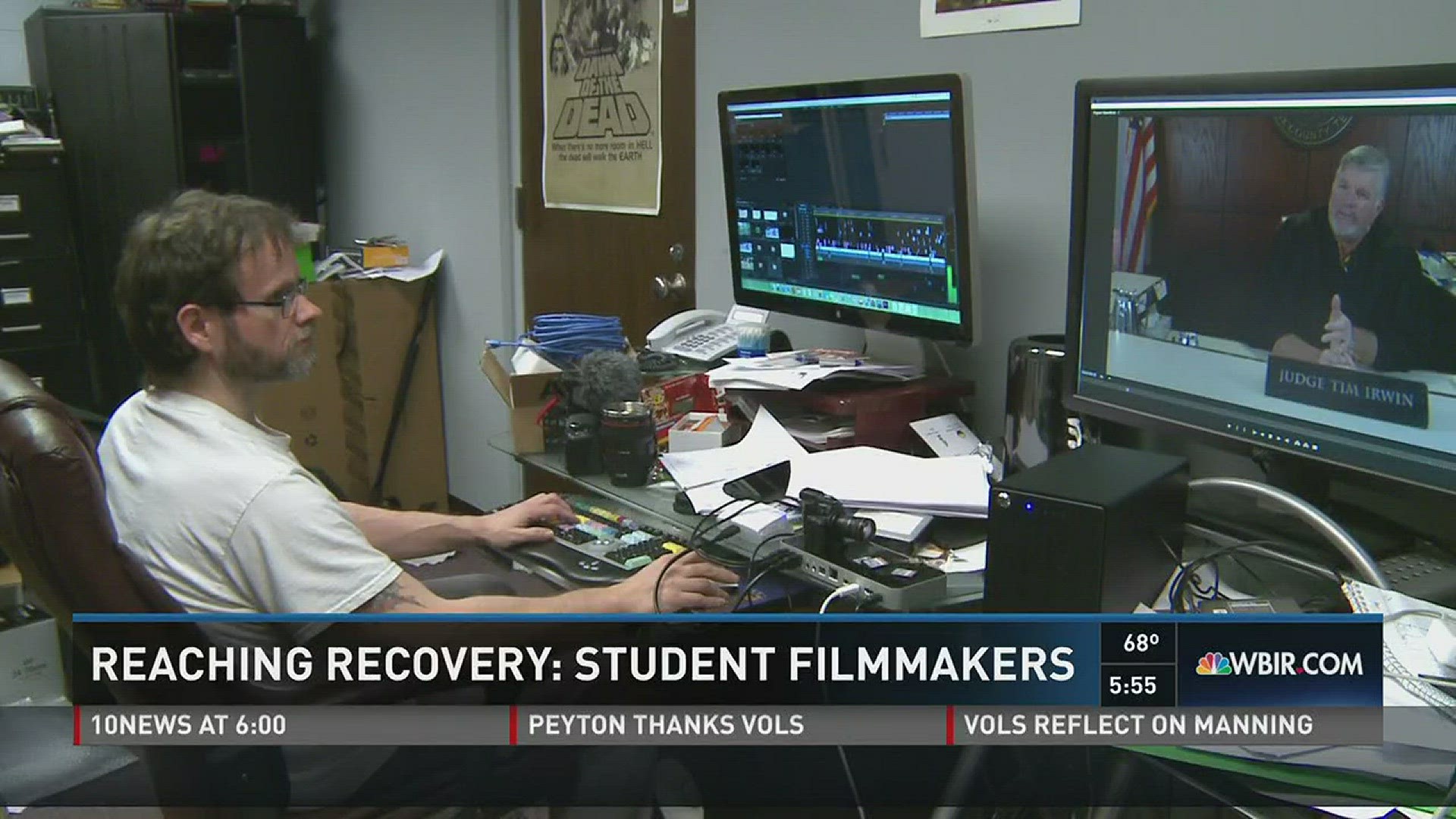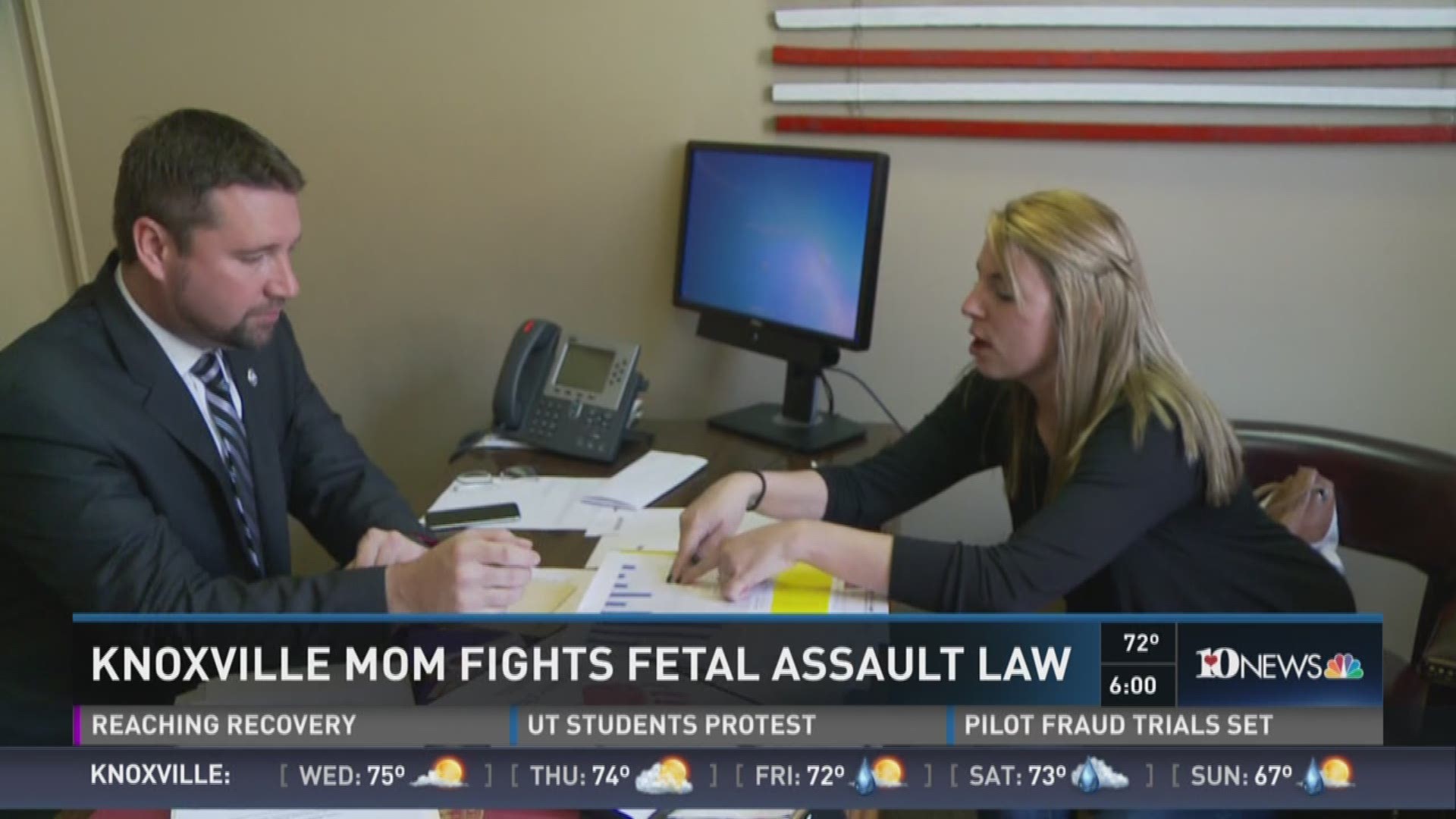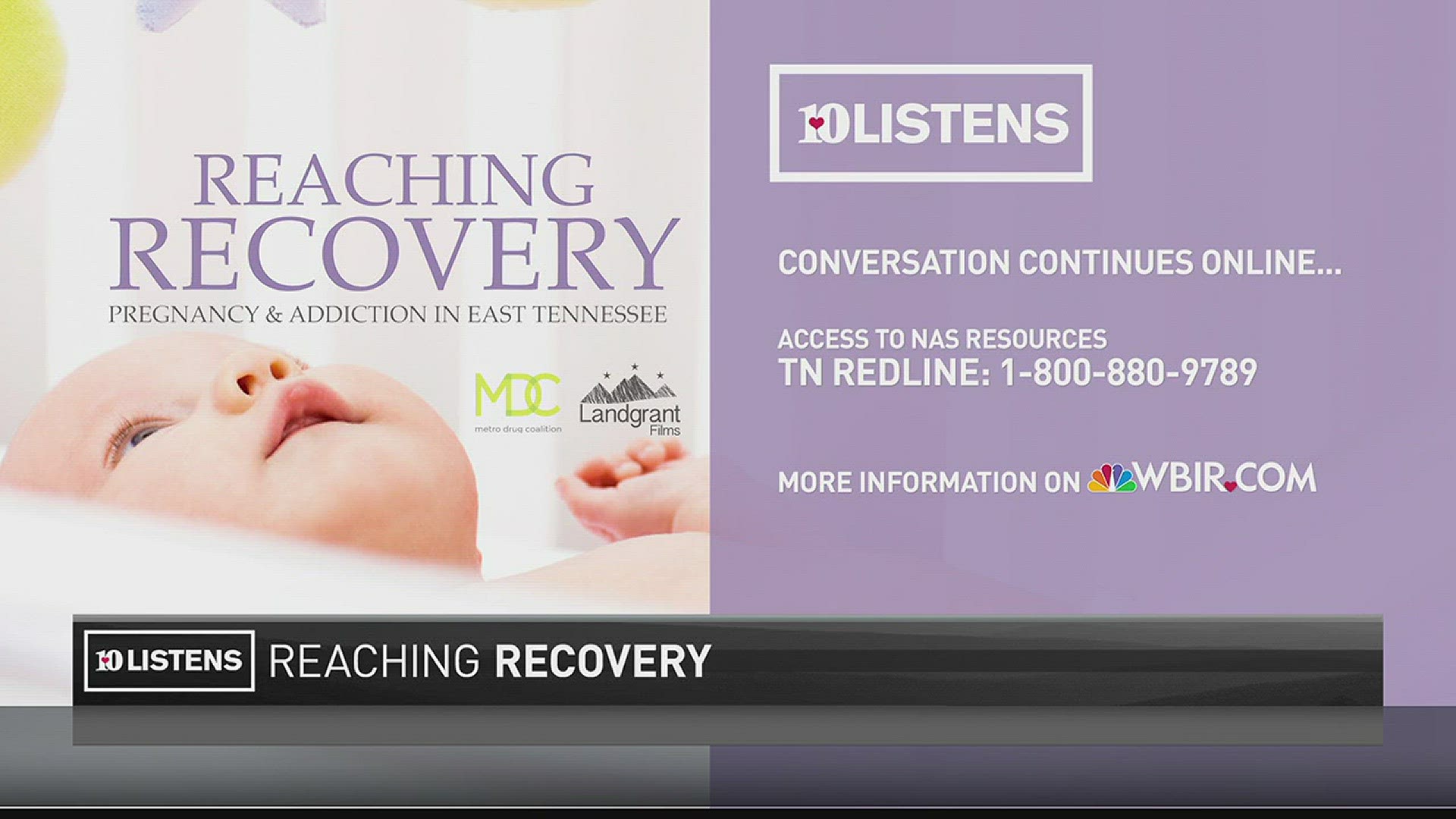You can watch Reaching Recovery: Pregnancy and Addiction in East Tennessee, a film by UT"s Land Grant Films, Thursday at 7 p.m. ET on WBIR and WBIR.com. Robin Wilhoit hosted a half hour forum on the subject immediately following the film.
Located at a crossroads for drug trafficking where I-40 and I-75 meet, Knox County is facing new challenges related to the effects of pill addiction.
Though the region has been historically prone to substance abuse, it has exhibited an unprecedented shift towards dependence on prescription pain medication in the last decade.
A major symptom of this development is the simultaneous rise in the rates of neonatal abstinence syndrome (NAS), a condition where babies are born dependent on controlled substances due to their mothers’ drug use during pregnancy.
Reaching Recovery: Pregnancy and Addiction in East Tennessee, a student and faculty produced documentary from Land Grant Films at the University of Tennessee, examines this problem through legal, medical, and social perspectives while documenting the difficulties mothers face in seeking treatment.
Tennessee is one of the nation’s most heavily medicated states, ranking third highest in the country in number of prescriptions filled per capita each year. Addiction cases within that statewide prescription culture are heavily concentrated in the east and northeast. Experts in Reaching Recovery link these regions’ high addiction rates to the poverty and low education levels commonly associated with Appalachia.
Alternatively, the wide demographic and socioeconomic range of pill addiction leaves the same experts seeking explanations for the problem besides regional culture. They point to medical approaches, like using patient satisfaction surveys to grade physicians and evaluating pain at every appointment, as incentivizing doctors to write more pain medication prescriptions.
Neonatal abstinence syndrome cases started appearing in large numbers in conjunction with the rise in pill addiction rates and became prevalent in 2010. Last year in Tennessee, 1,000 children were born drug dependent with 577 of these cases coming from the eastern part of the state.
NAS occurs when babies are exposed to medications, namely opioids, in utero and then show symptoms of withdrawal minutes to days after birth. Symptoms of NAS can include tremors, vomiting, diarrhea, tight extremities, uncontrollable sneezing and a distinct, high-pitched cry.
Though the long-term effects of NAS are unknown, babies seem to recover from withdrawal within a few days or weeks. The amount of medical care required during that timeframe, however, has forced local hospitals to devote more funding, space and attention to dealing with these children.
The growing attention devoted to NAS babies is not reflected in resources available for drug-addicted mothers. Women who are abusing prescription medication while pregnant are often faced with six to nine month waiting lists at treatment centers, and a general lack of education about the potential of NAS. Since April 2014, mothers are also at risk of being charged with misdemeanor assault and losing custody of their child under Tennessee Senate Bill 1391, a law that criminalizes taking certain medications while pregnant.
Photos from Reaching Recovery documentary
Brittany Hudson, a mother featured in Reaching Recovery, was charged under this fetal assault law and arrested after her second child was diagnosed with NAS. Hudson never received formal treatment, but ultimately reached sobriety after detoxing with the help of her own mother. While her story is a rare success, her search for help documented in the film is common to the other mothers interviewed on screen and many local women dealing with addiction during pregnancy.
Though capacity of treatment centers is low relative to the scope of the problem, numerous organizations are actively working with drug-addicted women. Reaching Recovery highlights the work of groups like Helen Ross McNabb Center, Renaissance of Recovery, and Susannah’s House. A comprehensive list of resources is also available through the Tennessee REDLINE at 1(800)889-9789, a 24-hour helpline from the Tennessee Department of Mental Health Substance Abuse Services.
Land Grant Films is a documentary journalism program housed in the School of Journalism and Electronic Media at the University of Tennessee. Its mission is to provide University of Tennessee students with real-world experience in documentary storytelling while providing local non-profit organizations with videos assets that can be used to raise awareness and funds. For more information and to view our other films go to landgrantfilms.org.







